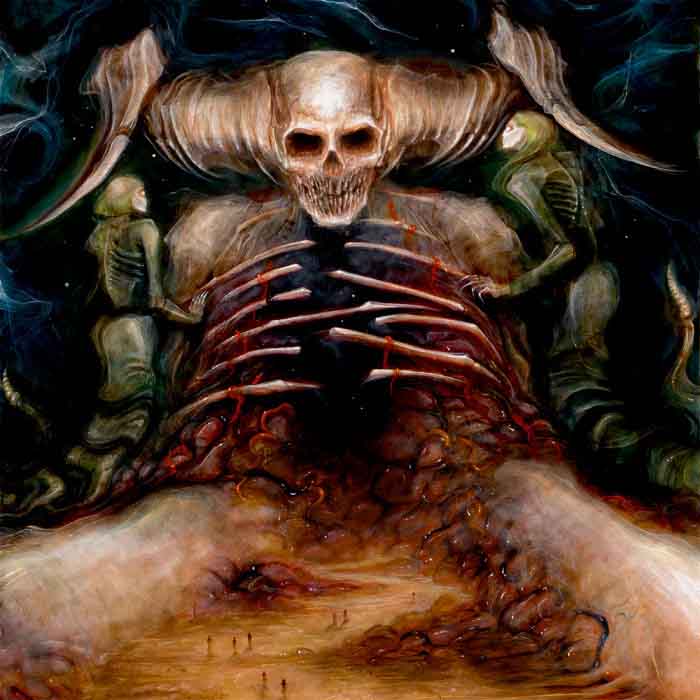
Horrendous is evolving. They’re not content to merely be one of our masochistic metal victims, so they’ve been gradually and haphazardly incorporating more jazz fusion and djent influences into what was previously a Heartwork inflected sound, and what continues to partially stink of it. What entertains me so much about Anareta is how neatly compartmentalized these two styles are and therefore how little they interact, making for perhaps two EPs stitched together and all sorts of increasingly implausible hypotheses about the band’s songwriting and tracking process that distract from the main issue at hand. Neither half of Anareta is exactly a sterling example of what already are difficult styles to pull off well in a metal context.
The “progressive” side of Horrendous leads off the album and appears to occupy significantly more of its runtime. This part of the recording emphasizes its internal rhythms – it is midpaced, replete with offbeats and odd time signatures, and it showcases some complicated interplay with the local guitarwork. I’m going to go out on a limb here and suggest that the band is at least trying to make something interesting and complicated, but there are a couple of problems with their approach. One admittedly trivial (but strangely attention-grabbing) flaw is that they have no idea how to write introductions to their tracks; therefore, many of Anareta‘s tracks begin with a minute or so of pseudo-random gassing. More importantly, the emphasis on surface rhythmic complexity isn’t matched by a willingness to expand the percussive textures that underlie it. Furthermore, the guitar tracks above this, while benefiting from the rhythmic prowess of the band, rarely allow their actual riff content to escape from the traditional metal and rock tropes that hold the band back. At the very least, Horrendous will need to severely edit their tracks and develop a better sense of narrative composition in order to master this substyle.
While it’s pointless to judge whether vaguely “progressive” metal is better or worse than generic melodeath and Stockholm syndrome, the gradual shift in emphasis towards the former over the band’s career suggests that if they keep going, they might have a genuinely good album on their hands in a few years. Anareta definitely hasn’t reached that point yet, being too haphazard and scatterbrained in its ambitions to really hit home, while still occasionally lapsing into straight up generic guitar pop.
16 CommentsTags: 2015, anareta, death metal, Horrendous, pseudo-progressive

